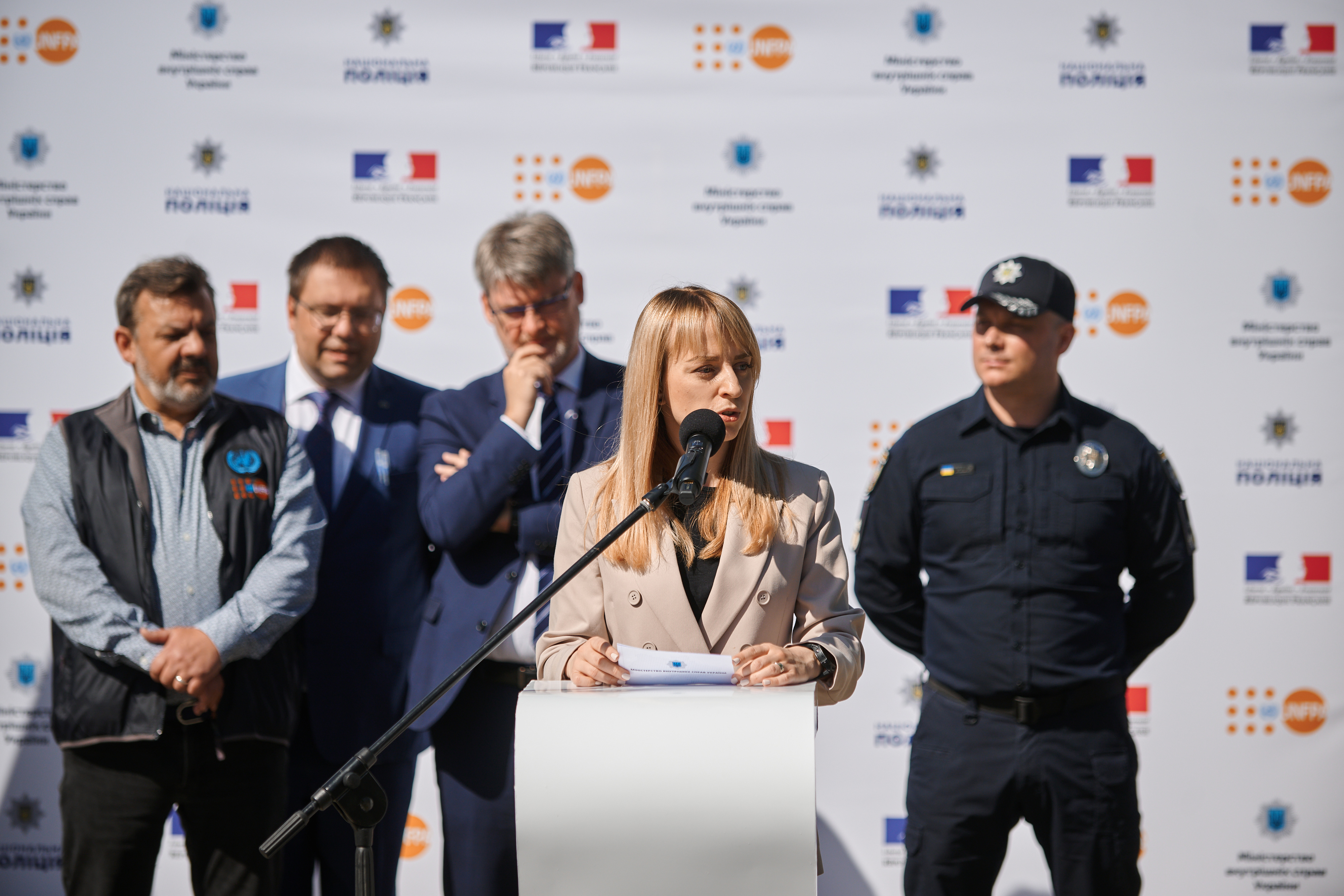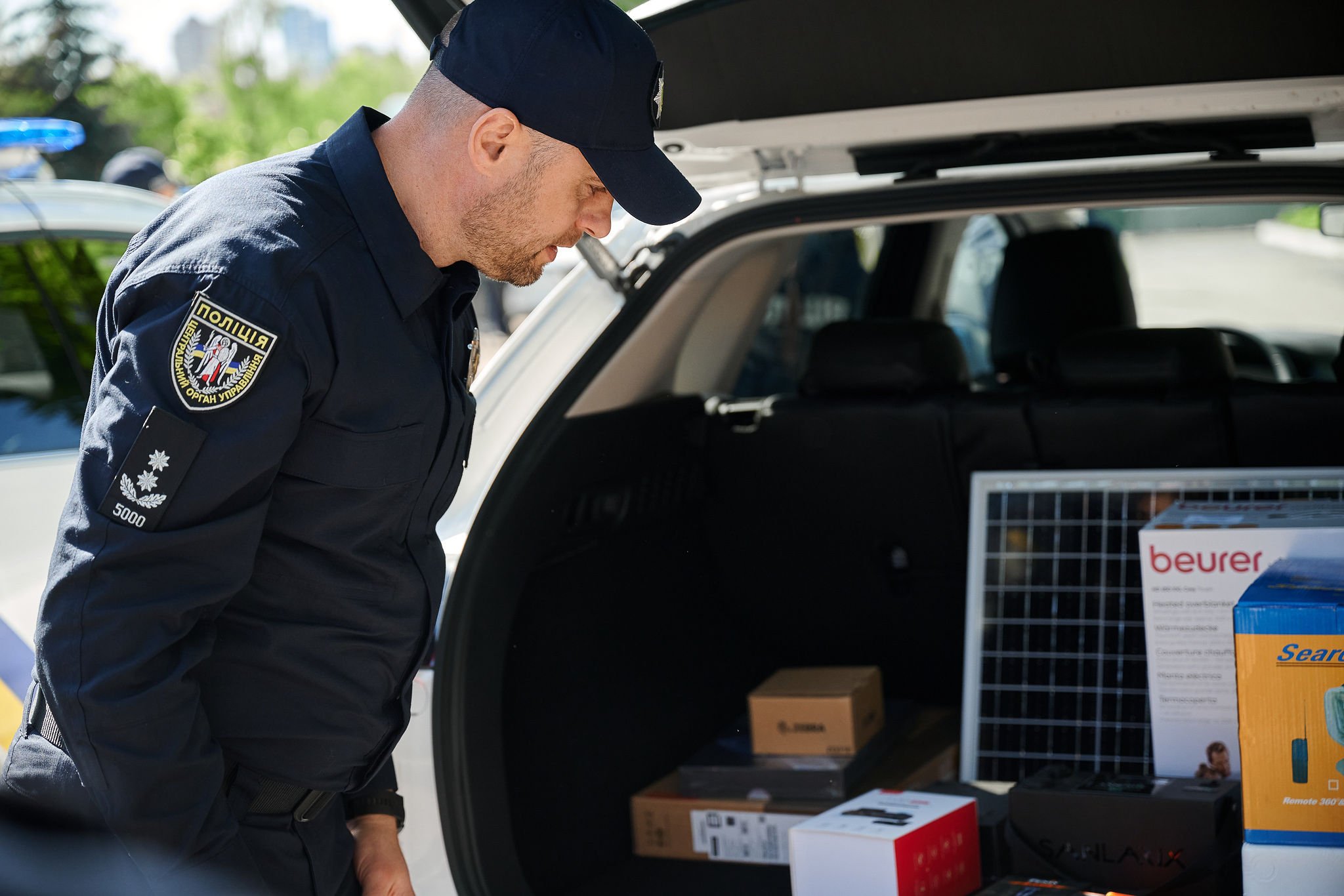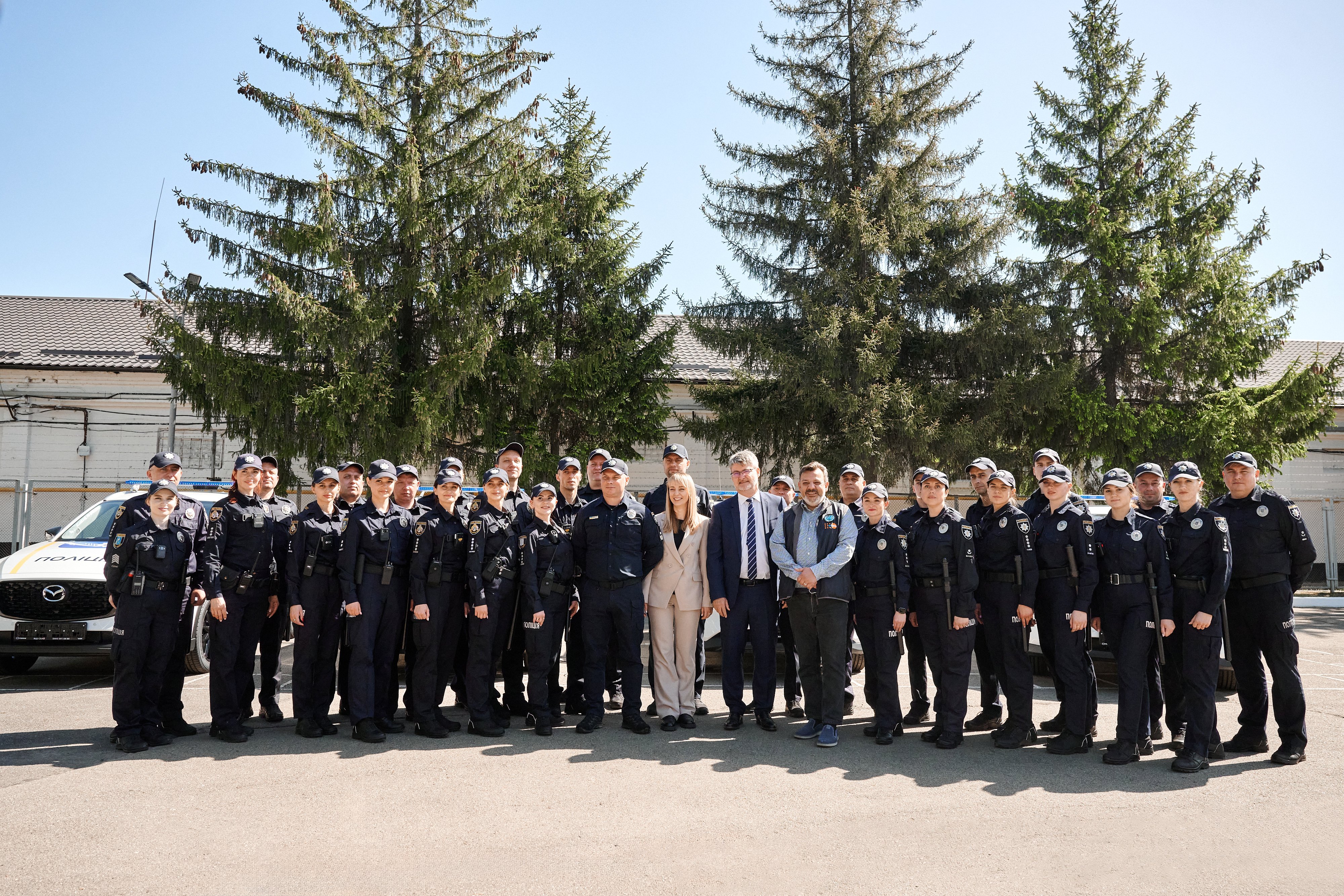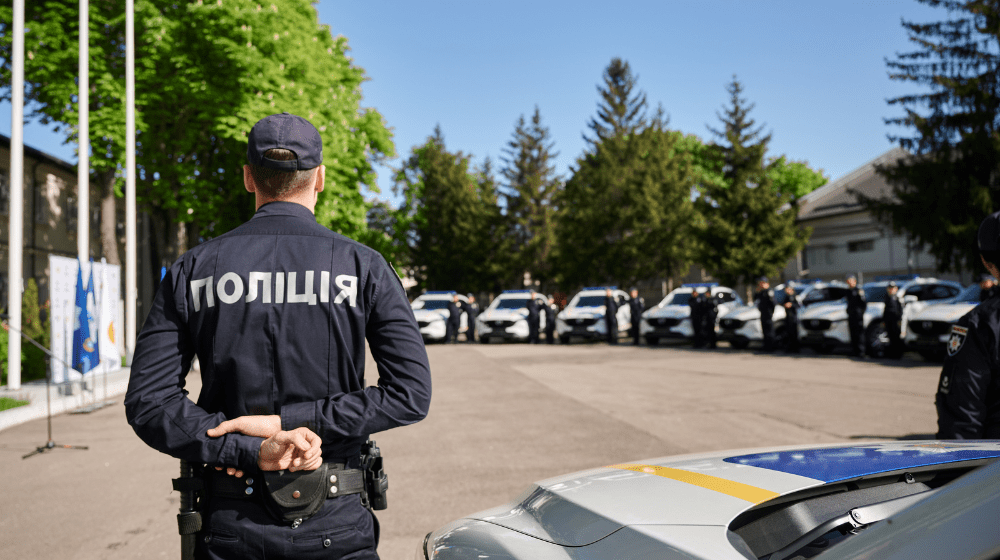Today, with the support of the French government, the United Nations Population Fund in Ukraine (UNFPA) donated 13 cars to the National Police of Ukraine. These vehicles will be used by mobile groups responding to instances of domestic violence.
During war, women and girls disproportionately face the risk of human rights violations, such as sexual violence, domestic violence, and cruel treatment. Lacking proper access to support systems in remote settlements of border and frontline areas, survivors are more vulnerable due to the increased risk of being isolated face-to-face with the perpetrators.

In 2023, the police recorded 291,428 cases of domestic violence, which is 17% more compared to the previous year. In fact, the number of cases is significantly higher and will continue to grow. Due to constant stress, psychological trauma of the population due to war, economic uncertainty, and emotional instability, violence can appear in those families where it was not previously present.
"We expect the number of domestic violence cases in families may increase by another 30%. Therefore, we are strengthening the units of the national police and focusing on developing sectors to counter domestic violence and mobile groups in regional subdivisions. In this direction, we have a long-term and reliable partnership with the UN Population Fund in Ukraine and hope that with the support of the French government, we will be able to continue and scale such initiatives to other regions of our country," said Katerina Pavlichenko, Deputy Minister of Internal Affairs of Ukraine.
The transfer of cars took place within the framework of the project "Supporting the police in creating an effective model of response to DV / GBV in wartime and in the transition period". The project also involves the creation of additional units and police response groups, training police to provide effective support to survivors, developing and piloting assistance algorithms and interaction with other services and departments operating in the region.
"It is very important that the assistance is comprehensive: this is both the training of police officers and the provision of technical and material assistance. It is important that cars equipped with special equipment can ensure full and effective police work in emergency conditions and in those regions that are under shelling or near the front line," the Head of the National Police of Ukraine Ivan Vyhivskyi said.

Separate cars for mobile response groups will help strengthen the capabilities of the National Police of Ukraine and allow to cover more calls in 11 cities of the Dnipropetrovsk and Sumy regions even in the absence of electricity. Each car is equipped with a portable solar charging station and portable charging devices, flashlights, a thermos, body cameras, and other equipment necessary for the work of specialized units to counteract domestic violence.
"It's crucial for us to stand with Ukraine and to support Ukraine. It would be a big mistake to make a difference between supporting the front lines and supporting the Ukrainian society: because Ukrainian society is actually the heart of Ukrainian resilience. So, we need to do both, we need to support the Ukrainian military, and we also have to tend to Ukrainian society. Supporting Ukrainian society also means supporting the police because the police is the one which is taking care of the survivors and other vulnerable groups," Ambassador of the French Republic to Ukraine Gael Veyssiere.

The work of the police is an extremely important part of the response and prevention system for domestic violence in Ukraine, especially in those regions that are restoring the work of services and assistance services.
"What we have learned from this crucial collaboration with Ministry of Internal Affairs and the national police over the past few years is that the impact on survivors is significantly greater when our local work is supplemented with broader municipal services. This initiative aims to enhance the capacity of the Ukrainian authorities to penetrate deeper into communities, including rural areas. That's why mobility and the equipment that enables it are critical," said Massimo Diana, UNFPA Representative in Ukraine.

Довідково:
Mobile response groups to domestic violence incidents are special police groups consisting of police officers who have undergone professional training and know how to provide effective assistance to survivors of domestic and/or gender-based violence. Currently, there are 52 territorial subdivisions and 60 such mobile police groups responding to domestic violence incidents in Ukraine. The donated cars will be distributed among mobile groups in the cities of Dnipro, Krivyi Rih, Kamyanske, Synelnykove, Pavlohrad, Novomoskovsk, Sumy, Shostka, Konotop, Okhtyrka and Romny.
The project "Police support for creating an effective response model to DV/GBV in conditions of war and transitional period" is being implemented by UNFPA, the UN Population Fund in Ukraine, in close coordination with the Ministry of Internal Affairs and the National Police of Ukraine with financial support from the French government.


